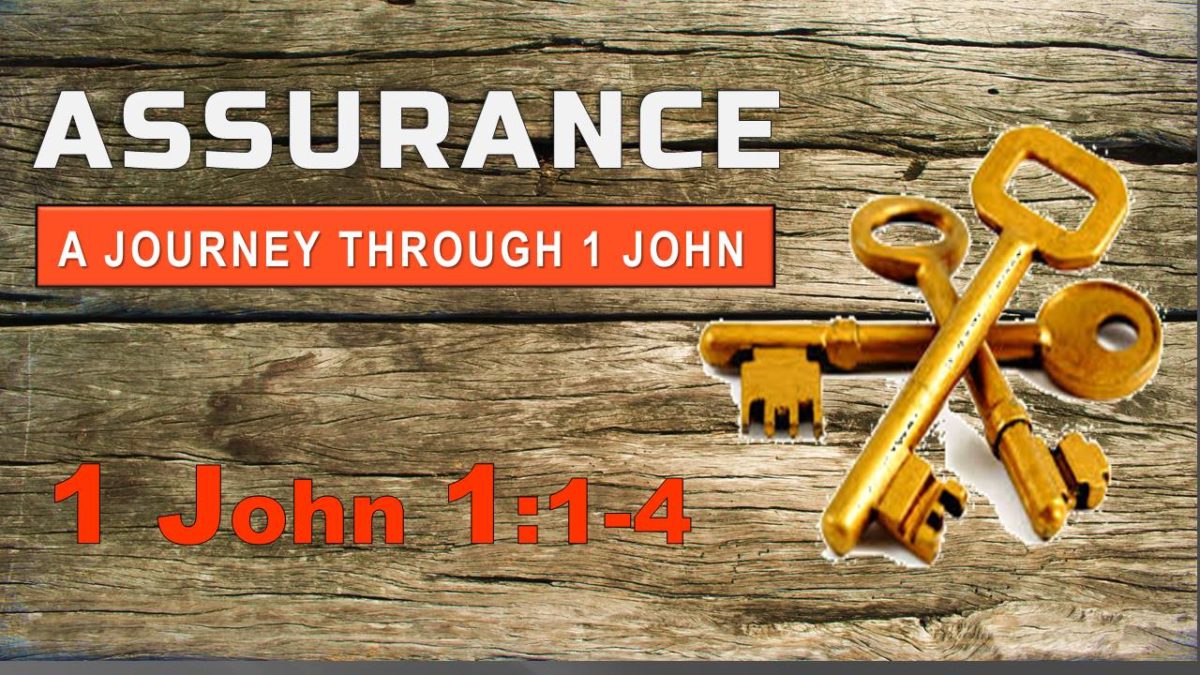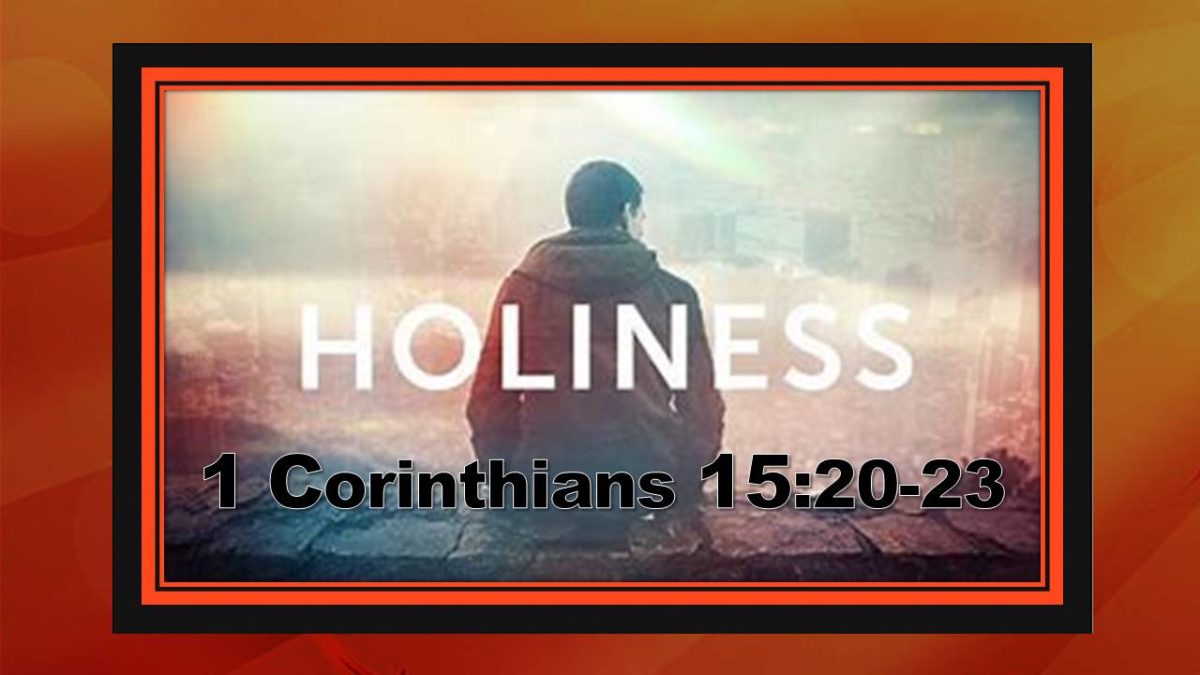What’s the source of your strength?
That might sound like a funny opener, so just think of your strength as being your “thing”—that part of your life that gives you significance and helps you get ahead. Up here in the Northwoods, our “things” might be our connection to our possessions (especially boats, guns, wheelers), our ability to spend our time the way we want, or even our special relationships—families even.
This week in our annual Ice Age Days service in Rib Lake we at Woodland are thinking about an historical figure who lived in the 11th century before Christ in the Ancient Near Eastern nation of Israel. Everybody wanted to know where this guy’s strength came from. “How’d you get that ‘thing’?” they might have asked.
The account of Samson begins in Judges 13 when the LORD himself appeared to Manoah and his wife and informed them they’d have a very special child. No razor shall come upon his head, for the child shall be a Nazarite to God from the womb, and he shall begin to save Israel from the hand of the Philistines (:5).
Nazarite. The word means “set apart one”. Ancient Israelites would take Nazarite vows (sometimes for only a period of time) and then abstain from alcohol and from the touching of dead bodies, and from cutting of the hair. This boy would be set apart for God’s purposes for his whole life.
Samson is born, but at age 20 and by the beginning of Judges chapter 14, he’s not grown into a choir boy. In fact, he’s like a tatted-up bar fighter. It’s my imagination, but I can see him walking the streets of Rib Lake—about 275 pounds, tattoos, really long dreadlocks. He’d once gone out for football, maybe, but now he’s flunked out of school, and he’s just mad. Alcohol doesn’t mix right with his meds; he’s a little bi-polar, and the cops are scared to death of him. Samson.
The rest of chapters 14 and 15 describe Samson’s great strength. He meets and marries a Philistine woman from among Israel’s enemies. Leading to the engagement he kills a lion with his own hands. After the engagement he visits the lion’s carcass and extracts honey and eats it—so much for being a Nazarite! He throws a wild party with lots of drinking, then kills 30 Philistines, so that he can give their garments to the 30 men who’d won a bet against him by bribing his new Philistine wife for the answer to a riddle. After his wife is given to another man he captures 30 foxes and ties torches to their tails so that they burn the Philistine crops and vineyards. Then, he hides in the wilderness. After the international incident, the Philistines encamp against Israel. Three-thousand Israelites find Samson who allows them to bind him, since he’d caused so much trouble for them. But, he snaps the ropes and kills 1,000 men once he’s delivered to the Philistines. He goes to Gaza where the Philistines find him with a prostitute. His enemies wait to catch him at dawn, but he slips out at midnight, wrenches the city gates from their moorings and plants them on a nearby hill.
Who is the source of Samson’s strength? What is the secret of Samson’s strength? His hair? … really?
The story comes to a climax in chapter 16 when God’s enemies seek the source of Samson’s strength (16.4-22).
Samson meets another woman named Delilah. As they’d done before, the leaders of the Philistines bribe Samson’s girl to get the secret of his strength. “Please tell me where your great strength lies,” Delilah pleads. In three separate incidents, Samson deceives Delilah and her fellow-conspirators. “Bind me with fresh bowstrings” (probably woven-up animal guts) … “Tie me up with new ropes” … “Weave my lovey-locks into the loom and pin them to the floor”. In three separate incidents Delilah puts Samson to sleep, performs the hinted-at action, then calls out “Samson, the Philistines are upon you!”
Samson responds with strength. He’s got the tiger by the tail, having a great time. But then, Delilah appeals to his love for her. Now Samson must choose between his God and and his girl. And here, he strays too close to the source of his strength.
“If my head is shaved, then my strength will leave me, and I shall become weak and be like any other man” Samson tells her (:17).
Delilah put him to sleep on her knees and has his hair shorn. At her signal to the Philistines hidden in the room, Samson thinks, “I will go out as at other times and shake myself free” But, as the text tells us, he did not know that the LORD had left him (:20).
The Philistines seize him, shackle him, put out his eyes, and put him to grind grain in the prison. But the hair of his head began to grow again after it had been shaved (:22).
Does Samson know the secret of his own, former strength? we have to ask.
Samson finds the source of his strength (16.23-31). God’s enemies boast over Samson. They gather at the temple of Dagon saying, “Our god has given Samson our enemy into our hand“. Big mistake. They call for Samson to have him perform for them. But after entertaining them Samson plays on his own weakness. “Let me feel the pillars on which the house rests, that I may lean against them,” he tells the boy leading him by the hand.
The temple would have been supported by two pillars with the majority of the 3,000 guests seated on a balcony above where they could view the courtyard below. Pretending to be exhausted, he rests his hands on the two pillars and prays, “O LORD God, please remember me and please strengthen me only this once, O God …” (:28). Then the Spirit of God returns, and Samson pulls the house down, on himself and on God’s enemies … so the dead whom he killed at his death were more than those whom he had killed during his life (:30).
The lesson of Samson is that God through His Spirit is the source of Samson’ strength, not Samson himself … and not his hair.
In the years that followed God would raise up the great prophet Samuel and the great king David, who prefigures the once and forever King Jesus Christ. Jesus came not to reign at His first coming, but to die and be raised from the dead to newness of life. That’s where we are today, awaiting Jesus’ second coming in power. And, those of us who live between Jesus’ two comings find our connection to Jesus through the Spirit of God.
One of the lessons I can take from the account of Samson is that God’s Spirit is the source of my strength.
Locating myself in God’s plan of redemption like this allows me to realize some truths about God’s Spirit in my life.
First, God’s Spirit enters my life when I trust in Jesus. (See Galatians 3.2). In contrast to the time before Jesus when God’s Spirit came on people for specific purposes and then left, we receive the Spirit who connects us to Jesus and then stays, preparing us for the time when we’ll really be with Jesus. Incredible!
Then, and second, God’s Spirit remains with me to remind me that I am set apart for Jesus. Romans 9.15-16 says, For you did not receive the spirit of slavery to fall back into fear, but you have received the Spirit of adoption as sons, by whom we cry, “Abba! Father!” The Spirit himself bears witness with our spirit that we are children of God.
God’s Spirit is now the warm, internal witness to the truth of the Gospel. It’s like He takes up residence in me to say, “It’s real! It’s real. You are set apart to God!”
Finally, the Spirit of God brings about life change. We didn’t really see this in Samson, did we? But, when God’s Spirit enters our lives, He comes to make us holy in our thoughts, words and deeds.
And that’s really important for each of us in our situations. Some of us are in tough places. Maybe, we have a young adult child who’s rebellious like Samson. We just can’t see a pathway forward. But, God can change hearts, so we pray the our child will trust God and that God’s strength will be released in his or her life. Or, we’re in an impossible family situation where there appears to be no human way our family tailspin will be stopped. Here again, God through His Spirit can be the source of our strength, and God wants to be approached by faith.
God’s Spirit is the source of your strength! What do you have to trust Him for, in Jesus? In the end, it’s not your “thing” that gives you strength. He is the Lord, and He would do business with you today.
See you Sunday in Rib Lake. And, have a great weekend, in the Lord …!












